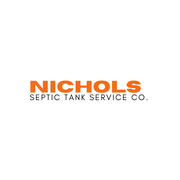Why You Should Never Put Additives in Your Septic System

Your septic system utilizes living organisms and bacteria to digest waste and help break it down. To maintain a healthy system, the balance of these living organisms must remain intact. While there are a number of septic tank additives on the market that promise to help regulate your waste system, these can actually hurt performance and disrupt the natural ecosystem of your tank. Here’s what you should know about the dangers of these chemicals.
Understanding Your Septic System
Your septic system is comprised of two parts: the septic tank and the leach field. Wastewater is first flushed into the tank to allow the separation of heavy and light solids. Natural bacteria then go to work breaking down the sludge and light solid material to reduce their volume. When new waste enters the tank, it pushes this separated wastewater to the leach field, where it is filtered through a series of pipes, gravel, and soil. Bacteria in the soil will further neutralize the remaining waste.
What Happens When Additives Are Added to a Septic System?
 Septic tank additives are either chemically or biologically based. These additives are marketed as a way to boost your system’s natural performance and help you avoid septic tank maintenance and pumping. However, additives have been shown to be ineffective, and worse, harmful to your tank’s performance. If administered improperly, these additives can contaminate groundwater and upset the natural balance of bacteria that are needed to regulate your system.
Septic tank additives are either chemically or biologically based. These additives are marketed as a way to boost your system’s natural performance and help you avoid septic tank maintenance and pumping. However, additives have been shown to be ineffective, and worse, harmful to your tank’s performance. If administered improperly, these additives can contaminate groundwater and upset the natural balance of bacteria that are needed to regulate your system.
Proper septic tank maintenance requires both everyday upkeep and routine service. To keep your septic system performing as it should or to restore its performance, call the pros at A & J Nichols Septic Tank in Byhalia, Mississippi. For more than 50 years, they’ve been the area’s go-to company for septic pumping, maintenance, and 24-hour emergency service. For more information, visit their website, or call (662) 838-2945 to speak to a member of the team about your septic tank needs today.
About the Business
(3 reviews)
Have a question? Ask the experts!
Send your question

